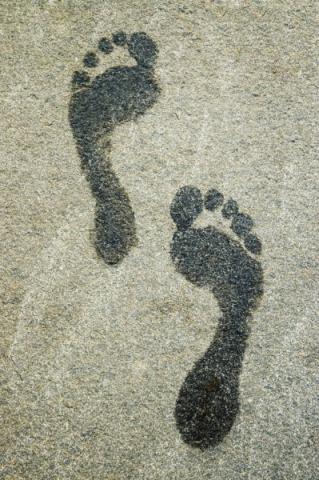Reduce your carbon footprint and improve health, say PHA

The Public Health Agency (PHA) is urging everyone to make climate change their business to help sustain local communities and protect public health.
During Climate Change Week (12– 18 March 2012), the PHA is calling for people to make simple changes to their lifestyle - both at home and in work - in a bid to reduce their carbon footprint and improve quality of life for everyone.
It is widely recognised that global climate change is already having long-term health consequences, as people are now being exposed to conditions which can result in illness and death due to respiratory illness. These include asthma, heat-related stress, the effects of flooding and colder weather, and insect-borne diseases. Also, increased exposure to UV radiation has led to more incidences of skin cancer.
Dr Carolyn Harper, Director of Public Health for the PHA, said: “Many of the activities that contribute to climate change lead to ill-health. Fortunately positive steps, such as walking or cycling instead of driving and eating less meat and processed foods, can reduce the risk of cardiovascular disease, diabetes, some cancers and be more friendly on the environment.
“Fewer cars also mean less trauma, less air pollution and less respiratory disease. Insulating your home makes it warmer, drier and more efficient, making it a healthier place to live, less costly to run and reduces our carbon footprints. Preserving the natural environment and spending time in green spaces has proven to have mental and physical health benefits.
“There are co-benefits for the health system and for health, in reducing your carbon footprint.”
Simple, yet effective ways to reduce your carbon footprint and lessen the impact of global warming are:
- Get active – why drive when you can walk or cycle to work? This will improve general fitness, reduce your risk of being overweight/obese and have a positive impact on your mental health;
- Shop locally – If you can, buy from your local shop and try to avoid imported goods. Foods transported from other countries use huge amounts of fuel;
- Reduce, re-use, recycle – Reduce: If you don't buy so much in the first place, then you won’t need to reuse or recycle. Re-use whatever you can, such as plastic supermarket bags. If you can't re-use something, recycle it!
- Turn it off and shut it down – Leaving electrical equipment, including TVs and computer monitors, on standby uses a surprising amount of energy. If you are not using something switch it off.
Dr Harper added: “It is important to bring about a long-term shift in the way people approach climate change and get them to adopt a number of changes that can be made to move towards a low-carbon society.”
Work out your carbon footprint by visiting www.carbonfootprint.com/calculator.aspx
Contact the PHA Press Office on 028 9055 3663
